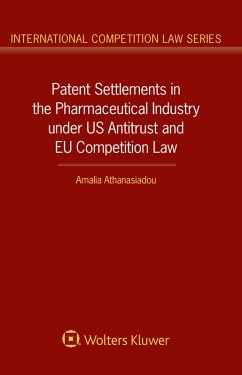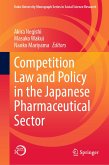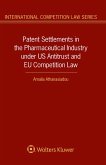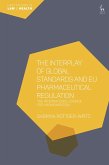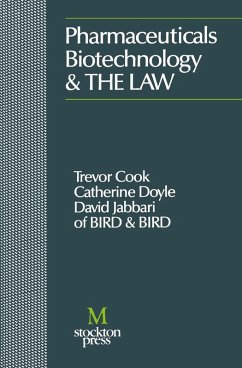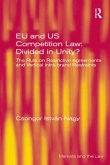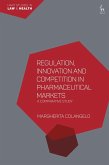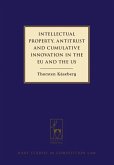Reverse payment settlements or "e;pay-for-delay agreements"e; between originators and generic drug manufacturers create heated debates regarding the balance between competition and intellectual property law. These settlements touch upon sensitive issues such as timely generic entry and access to affordable pharmaceuticals and also the need to preserve innovation incentives for originators and to strengthen the pipeline of life-saving pharmaceuticals. This book is one of the first to critically and comparatively analyse how such patent settlements and various other strategies employed by the pharmaceutical industry are scrutinised by both United States (US) and European courts and enforcement authorities, and to discuss the applicable legal tests and the main criteria used for their assessment.The book's ultimate objective is to provide guidance to the pharmaceutical industry regarding the types of patent settlements, strategies and conduct which may be problematic from US antitrust and European Union (EU) competition law perspectives and to assist practitioners in structuring settlements which are both efficient and compliant. To this end, an exhaustive legal analysis of some of the most controversial issues regarding pharmaceutical patent settlements is provided, including:- the lengthy split among US Circuit Courts on the issue of pay-for-delay settlements, its resolution by the US Supreme Court in FTC v. Actavisand subsequent jurisprudence;- the decision of Lundbeck v. Commissionby the European General Court and the Servier decision of the European Commission;- the Roche/Novartisdecision of the European Court of Justice and the most important decisions by National Competition Authorities on pharma patent settlements in the EU;- an overview of other types of strategies such as product-hopping and product reformulations, no-authorised generic commitments, problematic side-deals, mechanisms affecting generic substitution;- the rejection of the "e;scope of the patent"e; test in both the US and the EU and the balancing of patent law and antitrust law considerations in the prevailing applicable tests;- the benefits of settlements and the main criteria for assessing their legitimacy under US antitrust and EU competition law.The analysis provides concrete examples of both illegitimate and legitimate settlements and strategies, emphasising on conduct that falls within a grey zone and on the circumstances and criteria under which such conduct could be deemed problematic from an antitrust perspective.This book will serve as a valuable guide for pharmaceutical companies wishing to minimise the risk of engaging in conduct that could potentially infringe US antitrust and EU competition law. It further aims to save courts and enforcement agencies and also practitioners and academics considerable time and resources by providing an exhaustive analysis of the relevant caselaw, with the ultimate goal to increase legal certainty on the most controversial aspects of patent settlements in the pharmaceutical industry.
Dieser Download kann aus rechtlichen Gründen nur mit Rechnungsadresse in A, B, BG, CY, CZ, D, DK, EW, E, FIN, F, GR, HR, H, IRL, I, LT, L, LR, M, NL, PL, P, R, S, SLO, SK ausgeliefert werden.

